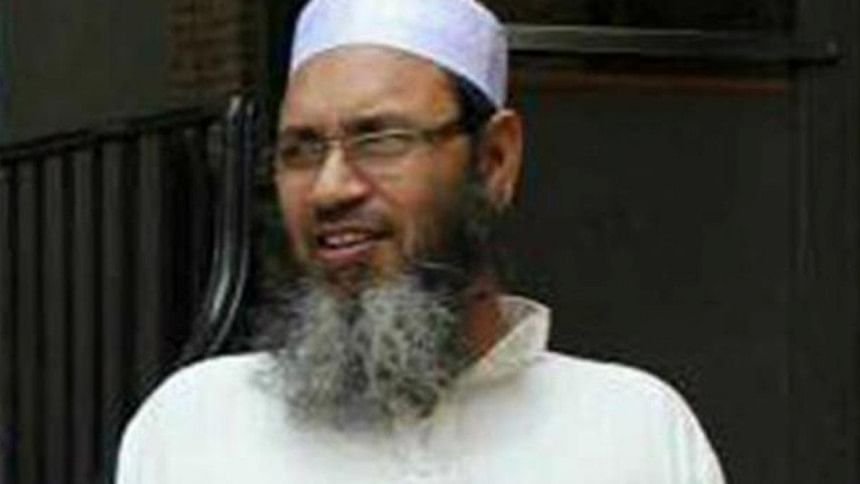Slain Muslim imam was beloved in Bangladeshi enclave of New York

Imam Maulama Akonjee was a devout spiritual leader beloved by his Bangladeshi Muslim community, according to those who knew him in the New York City neighborhood where he lived, worshiped and died violently.
Nearly everyone who knew the cleric and his religious associate Thara Uddin asked the same question: What reason would anyone have to gun down two revered, humble men as they left their mosque in the Ozone Park section of Queens on Saturday?
In a diverse neighborhood with a reputation for tolerance and relatively low crime, the mystery has raised suspicions among many residents that the brazen, daylight murders were inspired by hatred of their religious or ethnic identities. An outdoor funeral was held for the two men on Monday.
Badrul Khan, founder of Ozone Park's Al-Furqan Jame Mosque, said he had known Akonjee for a long time. The 55-year-old cleric, a father of seven, emigrated to the United States from Bangladesh several years ago, he said.
Judging from what he knew about the imam, Khan said he could think of only one reason the fatal shooting could have happened: "This is a hate crime, nothing else."
Police say the gunman stalked the men, who were dressed in religious garb, as they left Al-Furqan on Saturday afternoon and then shot them point-blank in the heads before fleeing.
A man was being questioned by detectives on Monday, but he had not been charged in connection with the killings. A motive had not yet been established, and police had not discovered a connection between the suspect and victims.
Khan, who spoke at the funeral for the two men in Ozone Park on Monday, told Reuters that the imam was a man of simple routines who lived and breathed his religious faith.
"This imam is a speaker, a translator for us," Khan said, referring to the cleric's role on interpreting the Koran. "His whole life was his job, praying here, then going home."
Akonjee never expressed political views in public, but instead was known for his kindness, humility and abhorrence of violence, Kahn said.
Rana Miah, 38, said he had known Akonjee since 2003. Miah's brother is married to the imam's daughter.
"He taught people at the mosque and visited them at their homes to teach them, with what time he had. He also used to cook for his family," Miah said.
Miah said Akonjee and Uddin used to walk together from the mosque to the block where they both lived. Akonjee had booked a ticket to return to Bangladesh at the end of the month to visit his mother, who is ill, Miah said.
Hasina Aktar, 33, a stay-at-home mother, said her father and husband both go to Al-Furqan mosque to pray.
She described the imam as a "nice, decent" man of strong faith, and she couldn't imagine why anyone would target him.
"He never fought. He encouraged Muslims in the community to pray, encouraged us to pray five times every day, to come to the mosque, to remember Allah."
Political overtones
Absent any other good explanation for the crime, she said she was inclined to think the murders were motivated by hate. Aktar said she has become afraid to wear her hijab in public, not because of the killings but because of what she sees is an escalating national anger against Muslims.
The funeral took on political overtones given the circumstances of the killings. The mayor and other elected officials condemned the shooting, and dozens of men in a sweltering parking lot held placards demanding justice.
To be sure, not everyone in Ozone Park believed the murders were linked to the men's religion or ethnicity.
Tyrone Fields, 51, who works at a nearby hospital, emigrated from Barbados but has lived in Ozone Park for years, he said.
"People really keep to themselves here. This is a nice neighborhood," he said. "I think it must have been something personal."

 For all latest news, follow The Daily Star's Google News channel.
For all latest news, follow The Daily Star's Google News channel. 



Comments